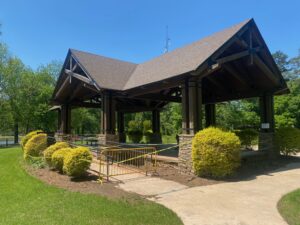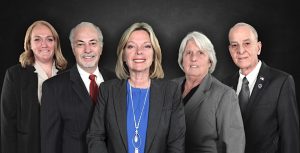Peachtree City is on the path to looking to the future. Presentations by the Atlanta Regional Commission (ARC), the Fayette County Development Authority (FCDA) and city planning staff at a March 1 statistics and trends workshop of the Peachtree City Council gave a glimpse of where the city is today and dove-tailed into the upcoming comprehensive plan that will address strategies for the next 20 years.
Mayor Vanessa Fleisch at the outset said the intention of the meeting was to “lay the foundations for decisions we’ll make into the future.”
City Manager Jon Rorie prior to the presentations laid out the reason behind the workshop, questioning if Peachtree City was the same as it was 20 years ago and asking where the city will be in the next 20 years.
“We are at a critical juncture,” Rorie said.
ARC representatives at the workshop included Center for Livable Communities Director Mike Alexander and Agency for Aging Director Kathryn Lawler. FCDA CEO Joan Young at the meeting had comments on efforts to recruit and retain businesses in the city.
Alexander provided a wealth of data comparing various aspects of the Peachtree City community to those around metro Atlanta and across the state and nation.
Lawler said longevity is a trend shaping communities today, adding that economic development strategies for the aging population is lacking in most communities.
“Communities with choice and options will weather the coming changes,” she said, referencing the need to address the options of housing, transportation and active, healthy living.
Those comments essentially dove-tailed into the comments by council members, Rorie and city Director of Planning and Development Mike Warrix, all of whom noted that the re-write of the upcoming Peachtree City Comprehensive Plan will address these and a host of other issues facing the city over the next 20 years. Four of those elements include economic development, land use, community services and transportation.
Presenters noted census data from 2010 showing that 48.32 percent of Peachtree City husband-wife households have school age children. That compares to 48.53 percent in Roswell, 53.12 percent in Newnan and 60.36 percent in Milton.
Like some empty-nesters, presenters said people in their 20s and 30s often prefer to live in or near downtown or urbanized areas.
Speaking of Peachtree City and Fayette County, Young said what is not present today is a young labor force.
“It’s not like it was 20 years ago,” Young said. “It’s getting harder for large companies to recruit employees.”
Young by way of example said a large Peachtree City employer recently offered a millennial mother with children a $30,000 bonus, but the woman turned the offer down because she wanted to live in the Midtown area.
Young also said the state’s perception is that Peachtree City is out of industrial land, out of industrial buildings and without millennials to provide a workforce balance.
Companies are expressing concerns with the ability to recruit and hire highly-skilled employees to live and work in Fayette County, Young added.
“This issue is not going away,” said Young.
City staff noted that nearly all today’s available industrial land is in small lots which are too small for a large industry.
In terms of median household income, Peachtree City came in at $95,405, a higher rate than other large metro communities except for Milton.
In terms of work and travel, presenters said 11,747 Peachtree City residents leave the city for work while 12,740 drive to Peachtree City for work and 2,460 city residents are employed in Peachtree City.
The lengthy presentations will be available on the city’s website at www.http://peachtree-city.org/













Leave a Comment
You must be logged in to post a comment.